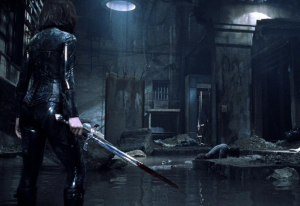Today brought the unsurprising but inevitable news that Warner Bros.’ Wonder Woman 1984 has officially been delayed due to the ongoing COVID-19 coronavirus pandemic. Movie theaters across the country are closed for business and major blockbusters from every studio have already moved their release dates from now through May, with some already moving to next year. Among those is Marvel Studios‘ Black Widow, the first film in their Phase Four line-up and the first solo movie for the character that has been an MCU staple so far. So with the new Wonder Woman 1984 release date official, what does that mean for Black Widow’s new release date? Let’s speculate below.
Videos by ComicBook.com
Originally set to debut on June 5th, the highly anticipated Wonder Woman sequel will now arrive in theaters on August 14th (assuming that there are no more delays) with Black Widow originally set to arrive on May 1 and now without a release date at all. On its original release date, the Black Widow movie had a whole month between it and the Distinguished Competition’s new film, and it seems unlikely that Disney and Marvel Studios would want to collapse that time-table and put less distance between the two movies when theaters eventually open up again. This leaves Marvel in a bit of a pickle with rescheduling Black Widow, not to mention the amount of other movies that have moved already or will eventually move.
That in mind, where does Marvel position Black Widow now? Any point in the month of August seems slightly unlikely given Wonder Woman 1984‘s release date (and perhaps further delays in theaters opening). Though a release date at the start of August is possible since Marvel previously released the first Guardians of the Galaxy in that slot and that would match the shortest length of time between a Marvel Studios and DC release (Thor: Ragnarok opened two weeks ahead of Justice League in November of 2017 after both suffered delays).
If August is deemed a no-go however, September and October seem unlikely as well; so perhaps Black Widow will instead move into The Eternals‘ November 6 release date with that film being delayed as a result. This is pure speculation on our part since it’s unclear that this will be Marvel’s plan, but a November release date is more traditional for a major blockbuster of this scale than a September or October release.
If this were to happen, it would mean The Eternals would need a new date too, perhaps taking Shang-Chi and the Legend of the Ten Rings‘ February 12 release date, starting a domino effect of moving all of Marvel Studios’ announced theatrical releases that could ripple throughout the next three calendar years. We should reiterate it’s unclear what will happen with these movies, but a delay for most of the entire Phase is possible, or perhaps a restructuring that gives 2021 five Marvel Studios releases (four were already scheduled before the outbreak of the coronavirus). It’s also worth remembering that production on Shang-Chi has been stalled due to the spread of the coronavirus, and if cameras are unable to roll on the film for the next few months it may need to be delayed anyway.
In the end it all comes down to both when movie theaters open and how Marvel Studios wants to stick to their plans. A full phase worth of movies and Disney+ shows were announced last summer and before any of them could get released the entire timetable has been disrupted by a global pandemic that no one saw coming in July of 2019. So where will Black Widow be released? We can’t say for sure just yet, but Marvel Studios has a lot of options with how they can handle the situation and maybe not totally change their Phase Four plans.








